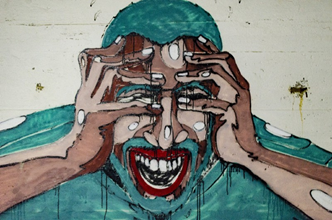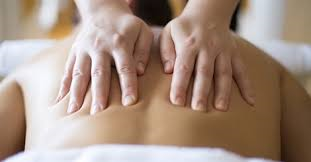Click ” Read More ” to go through full article.
Anxiety is a beast, but it is possible to win the battle without medication. It’s natural to be anxious. Panic attacks are sudden, intense surges of fear, panic, or anxiety. They are overwhelming, and they have physical as well as emotional symptoms. We all worry and get upset from time to time. It’s a normal part of life, right? But what happens when that anxiety or anger takes over, and you can’t calm down? Be calm, it is often easier said than done. Yet, here are some strategies you can use to try to stop a panic attack when you’re having one or when you feel one coming on. Take control by trying out the following actionable tips to calm down anxiety attack.

- Use deep Breathing. Inhale and exhale slowly. The deliberate process of taking slow, even, taking deep breaths can help restore normal breathing patterns and reduce anxiety. Sit with your eyes closed concentrate on your breath and forget everything else. Deep breathing activates the relaxation response. Multiple methods can help you learn how to breathe deeply

2. Trim the fat from your budget. Take charge of your finances and stop spending on non-essentials because debt will keep you up at night and contribute to feelings of low self-worth and hopelessness.
3. Challenge your thoughts. When we’re anxious or angry, we become hyper-focused on the cause, and rational thoughts leave our mind. Anxiety or anger is something irrational. And such thought make the situation worse. If you experience any of these thoughts then ask yourself some of questions like: Is this thought rational? Is it first time or did it happen to me before? Can I handle it? What might I do? Is this really likely to happen? Is this worry realistic? Is this really true or does it just seem that way?
4. Realize: realize that your brain is playing tricks on you. Once you realize, this will help you to decrease the intensity of anxiety or anger.

5. Visualize: Close your eyes and visualize yourself calm. Picture yourself on a river bank or outside in a favorite park, field or beach. Watch leaves pass by on the river or clouds pass by in the sky. Assign your emotions, thoughts and sensations to the clouds and leaves, and just watch them float by

6. Have a centering object. Be an observer without judgment. To much extent, this is very helpful technique to diminish your anxiety. Just have a look at your wrist watch or locket you are wearing and try to observe it i.e. colour, parts etc.

7. Admit that you’re anxious or angry. Once you allow yourself to say that you are anxious or angry then you can label how you are feeling. And let yourself to express it. This may cause to lessen your anxiety and anger.
8. Use muscle relaxation techniques. Sit up and drop your shoulders. And relax your body. This will surely help you reduce the anxiety. Make sure your feet aren’t crossed and your hands aren’t in fists. Start at your toes and tell yourself to release them. Slowly move up your body, telling yourself to release each part of your body until you get to your head
9. Change your focus. In the state of anxiety change your location you are sitting and look in another direction, walk out of the room or leave the place were ever you are.
10. Write it down. Writing can help you to get out of negative thoughts. No need to worry about punctuations. Just take down whatever comes in your mind about anything.
11. Get Some Fresh Air: Stepping out into your balcony or terrace for some fresh air and views of greenery or blue skies can alleviate your mood. And can reduce the anxiety. It will keep up physical and mental health. You will feel, not only the fresh air will help calm you down, but also the change of scenery can sometimes interrupt your thought process of anxiety or anger.

12. Fuel your body. You can make a variety of lifestyle changes to help manage your anxiety. Eating a diet high in vegetables, fruit, legumes, whole grains, and lean protein can be helpful. So, do not skip any meals. Do eat something even a small piece of burger as If you are hungry or not properly dehydrated many of technique will have no good effect to lessen you anxiety or anger.

13. Listen to recitation of Quran or some good lyrics.
14. Watch a funny videos: Welcome humor as a good laugh goes a long way as well as it is a good prescription for an anxious mind. Hence, this tactic may be the easiest one. Watch some clips of your favorite comedian or funny TV show to help relieve stress.
15. Massage or acupuncture: massage or getting acupuncture is a wonderful way to manage anxiety and anger.

16. Follow the 3–3–3 rule. Look around you and name three things you see. Then, name three sounds you hear. Finally, move three parts of your body i.e. your ankle, fingers, or arm. This mental trick can bring you back from anxiety.
17. Stay away from sugar: as research shows that eating too much sugar can worsen anxious feelings. Instead drink a glass of water or take some protein.
18. Keep lavender on hand. The fragrance from the oils of the lavender plant is believed to help promote calmness and wellness. It’s also said to help reduce stress, anxiety, and possibly even mild pain
19. Repeat a mantra internally: It will regulate your heart beat as well as it will enhance positive brainwaves the brainwaves that kick in during relaxation.
20. Meditation: It is the act of remaining in a silent and calm state for a period of time. 30 minutes of daily meditation may reduce some of anxiety symptoms and act as an antidepressant
21. Don’t drink alcohol. Alcohol is a natural sedative. If you rely on alcohol to relieve anxiety instead of treating the root of the problem, you may develop alcohol dependence.
22. Stop smoking. Most of smokers approaches to the cigarette in time of stress and anxiety. Yet, like alcohol, it can be a quick fix that may worsen anxiety over time.
23. Use positive self-talk: Anxiety can produce a lot of negative chatter. And tell yourself positive statements. For instance, you might say, “this anxiety feels bad, but I can use strategies to overcome it.
24. Practice mindfulness: Mindfulness practices can help lower symptoms of anxiety and depression. Yawn and stretch for 10 seconds every hour. Clench your fist and breathe into your fingers. Hug someone tight and take 3 big breaths together. Even if they don’t breathe with you, your breathing will ground them.
25. Get enough sleep. When stressed, your body needs additional sleep and rest. Sleep deprivation for one night can result in a 30% rise in anxiety levels, which can be mitigated by deep sleep.
26. Counting: Count to 10 slowly. Repeat, and count to 20 if necessary.
27. Do your best. Instead of aiming for perfection, which isn’t possible. So be proud of however close you get.
28. Acceptance: Accept that you cannot control everything. Put your stress in perspective: Is it really as bad as you think?
29. Maintain a positive attitude. Make an effort to replace negative thoughts with positive ones.
30. Get involved. Volunteer or find another way to be active in your community activities, which creates a support network and gives you a break from everyday stress.
31. Learn what triggers your anxiety. Is it work, family, school, or something else you can identify? Write in a journal when you’re feeling stressed or anxious, and look for a pattern.
32. Talk to someone. Tell friends and family you’re feeling overwhelmed, and let them know how they can help you. Talk to a physician or therapist for professional help.
33. Stay active: regular exercise is good for your physical and emotional health.Do some physical exercise but keep in mind, don’t do any physical exercise that include expression of anger, such as screaming or punching walls. Regular exercise can help lower stress and anxiety by releasing endorphins and improving your sleep and self-image. Yoga is widely used for stress reduction. It may help lower stress hormone levels and blood pressure. And it’s not just a short-term fix; you may experience anxiety relief for hours after working out.
34. Consider Supplements: Several supplements including lemon balm, omega-3 fatty acids, ashwagandha, green tea, valerian and kava kava, promote stress and anxiety reduction.
35. Reduce Your Caffeine Intake: Reduce your caffeine intake. High quantities of caffeine can increase stress and anxiety. However, people’s sensitivity to caffeine can vary greatly. Some studies show that consuming more than 200 mg of caffeine (just two cups of coffee) can increase the likelihood of anxiety and panic attacks in people sensitive to it.
36. Learn to Say No: Try not to take on more than you can handle. Over burden will enhance your stress. Saying no is one way to control your stressors.
37. Distract yourself: Stopping the train of negative thoughts can get your blood pressure back to normal levels. Take some time out during the day to focus on a hobby or activity like reading, painting or doing a puzzle. This will allow you to escape from anxiety.
38. Balance social media: Social media can cause more stress due to sad news. So do balance your social media consumption by adopting following some ways.

· Limit your usage. There’s really no good reason to be checking social media sites more than once or twice a day.
· Remember the value of real-life interactions.
· Treat people like people.
· Find new hobbies.
· Take extended breaks
39. Chew gum: According to several studies, chewing gum may help you relax. It may also promote wellbeing and reduce stress.
40. Spend time with friends and family: Having strong social ties may help you get through stressful times and lower your risk of anxiety.
41. Learn to Avoid Procrastination: procrastination may be symptomatic of a psychological disorder. Procrastination has been linked to a number of negative associations, such as depression, irrational behaviour, low self-esteem, anxiety and neurological disorders Prioritize what needs to get done and make time for it. The long list of to-do can increase procrastination-related stress. Here are some tips to avoid procrastination: get organized, set simple achievable goals, create a timeline (schedule) set a deadline, get rid of distractions, take a break and use incentives.

42. Cuddling: cuddling, kissing, hugging and having sex with wife can all relief stress.
43. Spend Time With Your Pet: Spending time with your pet is a relaxing, enjoyable way to reduce anxiety. Pets reduce stress and anxiety and can sniff out medical conditions. Animals provide affection and comfort. They help to reduce blood pressure and promote heart health. Furthermore, Having a pet helps us stay more active and get outside. Animals can reduce the risk of illness. Pets help us socialize and meet new people.
44. Light a candle with different scents including Lavender, Rose, Vetiver, Bergamot, Roman, chamomile, Neroli, Frankincense, Sandalwood, Ylang ylang, Orange or orange blossom and Geranium. Several studies show that using scents can decrease anxiety and improve sleep.